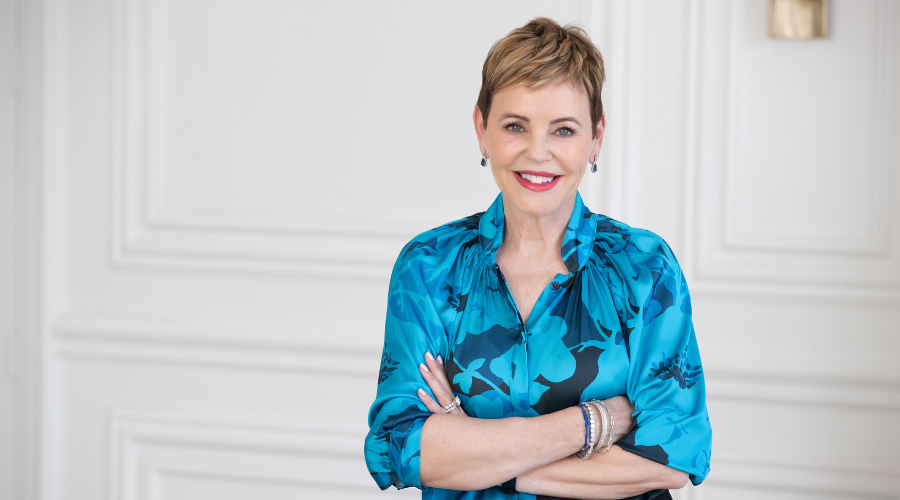For many Canadians, is a high priority: in fact, two-thirds of them are homeowners. However, given the cost of housing, most Canadians need to take out a mortgage to be able to buy their home.
What many people don’t know, however, is that there are many different types of mortgages available in Canada. But what is the best type of mortgage to get for your personal circumstances?
To help you understand what your options are, we examine all the different types of mortgages available in Canada, including fixed vs. variable mortgages, open vs. closed mortgages, the only, and portable and assumable mortgages.
Mortgage features
Most people who buy a home need to pay for most of it with a mortgage. A mortgage is a loan secured against the home (which means that if you default on your loan, the lender could sell your home to pay off your debt).
Every mortgage has an amortization period: this is the amount of time it will take to pay off your mortgage in full. When you first buy a home, this is usually for 25 or 30 years. The amortization period usually decreases every time you renew your mortgage.
You also have a mortgage term, which is the length of time you sign up with a specific lender, with specific conditions. The term is often for five years but can be for a longer period or as short as a year. At the end of each term, you can renew with your current lender or switch lenders and also switch conditions. These conditions include the mortgage interest rate and prepayment privileges (the amount of extra money you can pay off during the term without penalties).
You also need to provide a down payment, which is a percentage of the cost of the home. No bank will lend you 100% of the value of your home. The minimum you can put down is 5%, but any amount under 20% will require you to pay mortgage loan insurance. . This can cost thousands of dollars, but the amount can be added to your mortgage.
Now we’ve covered the basics of mortgages, let’s look at the different types of mortgage loans in Canada and how they work.
Fixed vs. variable mortgages
These types of mortgages determine the interest rate you’ll pay over the mortgage term.
Fixed Mortgage
A fixed mortgage rate is set in stone for the duration of your contract. So, for example, if your rate is 4% and your term is five years, you know that you’ll be making the same payments, at that exact interest rate for five years, no matter what might happen to interest rates elsewhere and market conditions.
Variable Mortgage
All types of variable mortgages have a floating rate, which means that the interest rate could go up or down during the term. Variable interest rates are tied in with the Bank of Canada’s policy interest rate. When this rises and falls, lenders’ prime rates typically rise and fall as well. Banks and other lenders base their variable rate on their prime rate plus or minus a certain amount (for example, prime minus 1% or prime plus 0.5%).
If you have a variable mortgage and the prime rate increases, the impact will depend on the types of variable mortgages you choose. You could either end up having to make higher mortgage payments or paying off less of the principal (the amount of money you owe on your home).
A hybrid interest rate is a combination of a fixed rate and a variable rate (for example, 75% of your loan might be at a fixed rate, with the rest at a variable rate).
Open vs. closed mortgage
Of all the different types of mortgages in Canada, it’s really important to understand how these two work.
Closed Mortgage
Closed mortgages are less flexible: you can’t switch mortgages before the end of the term without paying a (usually hefty) prepayment penalty. And you can only make extra payments towards the principal of the mortgage within certain limits (usually between 10-20% of the total owed).
Open Mortgage
Open mortgages are far more flexible: you can pay off the mortgage by as much as you like or switch mortgages at any time, without paying a penalty. These are the types of mortgage loans you should consider if you think you might need to move fairly soon or might want to pay off your mortgage faster.
The key disadvantage of open mortgages is that they usually have considerably higher interest rates than closed mortgages.
Portable and assumable mortgages
When you’re considering what is the best type of mortgage to get, having a portable or assumable mortgage could be an important factor.
Portable Mortgage
A portable mortgage is one you can take with you if you sell your home and move, including the mortgage balance, the interest rate and other terms (like prepayment privileges). You can do this without paying a penalty. If there is a chance you might move homes in the next few years, this could be the best type of mortgage for you.
Assumable Mortgage
Assumable mortgages allow someone else to take over your mortgage (usually when they buy your home). All the terms of the original mortgage, such as the interest rate and prepayment privileges, would stay the same.
This could be a good option if you wanted to move homes without having a prepayment penalty or if you wanted to buy a home with a mortgage rate that’s better than the one currently on offer.
New vs. Renewal vs. Refinance mortgages
Of all the different types of mortgages in Canada, these specifically refer to when you take on a mortgage and whether you keep the same lender or same conditions as your previous one.
A new mortgage is usually when you first buy a new home and don’t have a previous mortgage.
A renewal mortgage is when your mortgage term comes to an end, and you renew it for another term. You can change a few aspects of your mortgage on renewal, such as interest rate, fixed or variable rate, as well as the mortgage lender.
A mortgage refinance involves making larger changes, such as the amortization period and the amount of money you owe on your home. Mortgage refinances often involve an increase in the principal owed on your home, with the lump sum often used to pay for renovations, consolidating debt or other purposes.
Which mortgage is right for you?
Many first-time homebuyers go with a new, fixed-rate, five-year-term closed mortgage, possibly with the condition that it’s a portable or assumable mortgage.
If you believe mortgage rates are likely to stay the same or possibly go down, you might choose a variable-rate mortgage.
If you already own your home and you’re looking to cash in some its equity, the types of mortgages available to you are a refinance mortgage or, if you’re aged 55-plus, a reverse mortgage.
If you think you might move homes soon after renewing your contract, an open mortgage, or a portable mortgage might be the best type of mortgage for you.
If you’re aged 55-plus and you want to stop making regular monthly mortgage payments, and/or want to cash in some of your home’s equity without it impacting your retirement income, a reverse mortgage might be the best type of mortgage for you.
Types of mortgages for retirees
Canadian homeowners aged 55-plus have a type of mortgage loan available only to them: a reverse mortgage. There are a few features of these types of mortgages for retirees, which you won’t find in other types of mortgages in Canada:
- You can borrow up to 55% of the home’s value.
- There are no regular mortgage payments to make.
- You only pay back what you owe when you sell your home or move out.
- You could pay off your current mortgage with a reverse mortgage.
- You could pull equity out of your home and receive it in either a lump sum, regular deposits, or a combination of both.
A reverse mortgage is one of the most popular types of mortgages for retirees because it frees up a lot of retirement income. Without having to make regular, conventional mortgage payments, retirees can use more of their retirement income to improve their lifestyle.
Getting started with a reverse mortgage
Retirees are in the fortunate position of being able to replace their conventional mortgage with a reverse mortgage and stop having to make regular mortgage payments.
HomeEquity Bank, provider of the CHIP Reverse Mortgage, is a federally regulated, Schedule 1 Canadian bank. We offer a safe financial solution for homeowners that allows them to stay in the home they love, without having to move or downsize.
We have been championing the financial needs of Canadian homeowners 55-plus with simple and effective financial products that help them enjoy a more secure retirement.
A by HomeEquity Bank is the type of mortgage that can boost your retirement income and help you live retirement on your own terms. Call us at 1-866-758-2447 to find out how much you could borrow.































